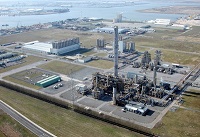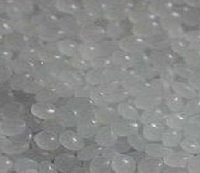Plastic petrochemicals sustainability textiles 08-12-2018 - Arhive
-Borealis increases PP capacity in Europe
Polyolefins supplier Borealis is increasing its polypropylene (PP) capacity in Europe and to meet the European customers’ needs for “innovative polypropylene.”
The company had previously announced a study looking into the feasibility of significantly increasing its PP production capacity in Europe.
Borealis has taken the final investment decision to expand the capacity of its PP plant in Kallo, Belgium, by 80,000 tonnes/year. The added capacity is expected to come on stream in mid-2020.
Borealis also approved the start of the front end engineering and design (FEED) phase for the expansion of its PP plant in Beringen, Belgium.
The final investment decision on this 250,000–300,000-tonnes/year expansion is envisaged by the end of 2019 and the start-up is expected mid-2022.
This project would include an upgrade of the current process technology to the proprietary Borstar platform.

-Re-design, use plastics waste as a resource key to circular economy – Europe trade groups
Re-designing plastic products and using plastics waste as a resource are crucial elements in a circular economy, European plastics trade groups and the region’s chemicals sustainability promotion platform SusChem said on Thursday.
The report would represent a shared vision of how collaboration in the plastic value chain will be a driving force of the circular economy in plastics, according to its promoters.
The report ‘Plastics Strategic Research and Innovation Agenda in a Circular Economy’ outlines the research needed to meet the objectives of the EU’s Plastics Strategy, SusChem, Cefic, PlasticsEurope, European Plastics Converters (EuPC) and the European Composites, Plastics and Polymer Processing Platform (ECP4), added.
Plastics consumption and waste production data show that there is “clear room for improvement” in recycling and resource recovery, the groups behind the report say.

-Recycled carbon fiber key to mass market application
More than 30% of the carbon fiber produced eventually ends up as waste, including 22% in the form of manufacturing waste from processing of thermoset carbon fiber-reinforced composites.
Carbon fiber demand forecast to grow to at least 117,000 tonnes by 2022 according to AVK, and at least 26,000 tonnes of this carbon fiber would be expected to end up as manufacturing waste according to carbon fiber recycler ELG Carbon Fibre Ltd.
“Reusing these fibers reduces the cost and environmental impact of carbon fiber structures without comprising the technical benefits of these materials and provides additional capacity that could alleviate supply shortages,” says ELG Managing Director Frazer Barnes. While recycled carbon fiber’s modulus is essentially the same as that of virgin carbon fiber, it offers 20–30% cost savings and even with its 10–20% reduction in tensile strength, it remains one of the strongest of all commercially-available reinforcing fibers available today.

-Convenience is pivotal to a UK deposit scheme, say consumers
Consumers think that a 10p deposit is sufficient to encourage returns
More than half of consumers think that 10p (US$0.13) is sufficient a deposit to incentivise them to return packaging for recycling, while most are not prepared to travel more than a mile to get their deposit back, according to a survey conducted by UK charity RECycling of Used Plastics (RECOUP).
As the British government is set to consider the potential for deposit return scheme for packaging as a means of reducing waste and increasing the recycling rate, RECOUP interviewed 341 consumers in three locations around the country and found that only 20 per cent of people thought a deposit of 30p ($0.38) or more would be needed. Convenience is the key feature for consumers, with 36 per cent only prepared to travel less than a mile to get their deposit back, and 20 per cent saying that they would not travel at all.

-KARL MAYER To Exhibit Warp Knitting At ISPO Munich
The textile machinery manufacturer, KARL MAYER, is participating more and more in shows concentrating on applications and end-uses.
“We want to pick up customers at key textile areas and introduce them to something new by offering innovative textiles and concepts,” says Oliver Mathews, the Sales Manager of the Business Unit Warp Knitting, when speaking about the aims behind this decision.
The next important date in KARL MAYER’s diary of events is ISPO Munich.
KARL MAYER can be found here on stand 408 in hall C4 of Messe München – right at the centre of the exhibition’s trends hub.
KARL MAYER will be demonstrating the performance features of warp-knitted textiles on an area of 120 m², surrounded by the latest fabrics, styles and accessories.

-Europe PE Dec prices down sharply on feedstocks, but producers aim to retain margin
European polyethylene (PE) prices are dropping for December, but the amount of the price decrease in freely negotiated accounts is not yet clear.
“I’ve been offered minus 50 [€/tonne],” said a buyer, “but it should end up more than that.”
Ethylene-linked deals will automatically drop by €110/tonne, in line with the drop in the December ethylene contract.
However, most producers are trying to hold on to some margin, and for the moment it looks as though they will be at least partially successful.

-Sasol’s US Lake Charles LLDPE unit mechanically complete, cracker completion imminent
The linear-low density polyethylene (LLDPE) unit of Sasol’s Lake Charles Chemicals Project (LCCP) in the US is mechanically complete, and mechanical completion of the cracker is imminent, a company spokesman said on Thursday.
The overall project had reached 91% completion, with engineering and procurement substantially complete and construction at 75%, by the end of September, the company source said.
At that time, capital expenditure on the project amounted to $10.4bn.
The LCCP project includes a 1.5m tonne/year ethane cracker, and downstream units of 470,000 tonne/year LLDPE, 420,000 tonnes/year low density polyethylene (LDPE) and 300,000 tonnes/year of ethylene oxide (EO).

-ENGEL set to combine efficiency and sustainability at Arabplast
ENGEL says will showcase optimum efficiency, maximum performance and consistent quality when it exhibits at Arabplast in January.
The Austria-based injection moulding machinery manufacturer says it will be demonstrating how tailor-made interplay between the injection moulding machine, automation, and the mould can achieve these demands cost-effectively and sustainably.
During the fair from January 5th to 8th in Dubai, United Arabic Emirates, ENGEL will focus on highlighting how such systems can be used to produce innovative products and applications for the construction, logistics and packaging industries.
![]()
-Toy maker Lego to focus on renewable bioplastics, rather than recycling
Lego will focus on producing products with lasting bioplastics and reduce its environmental footprint in the production process, rather than on recycling systems, an executive at the Danish toy maker said on Wednesday.
Bistra Andersen, senior product manager for materials at Lego, also said that there was not a “universal definition of ‘sustainable material’, adding that the company had partnered with the World Wide Fund for Nature (WWF) to reach a definition of what is sustainable, together with other industry players.

-More bioplastics do not necessarily contribute to climate change mitigation
Study from the University of Bonn assesses potential implications of transitioning to plant-based plastics
Bioplastics are often promoted as an environmentally and climate-friendly alternative to conventional petroleum-based plastics. However, a recent study from the University of Bonn suggests that shifting to plant-based plastics could have less positive effects than expected. Specifically, an increased consumption of bioplastics in the following years is likely to generate increased greenhouse gas emissions from cropland expansion on a global scale

